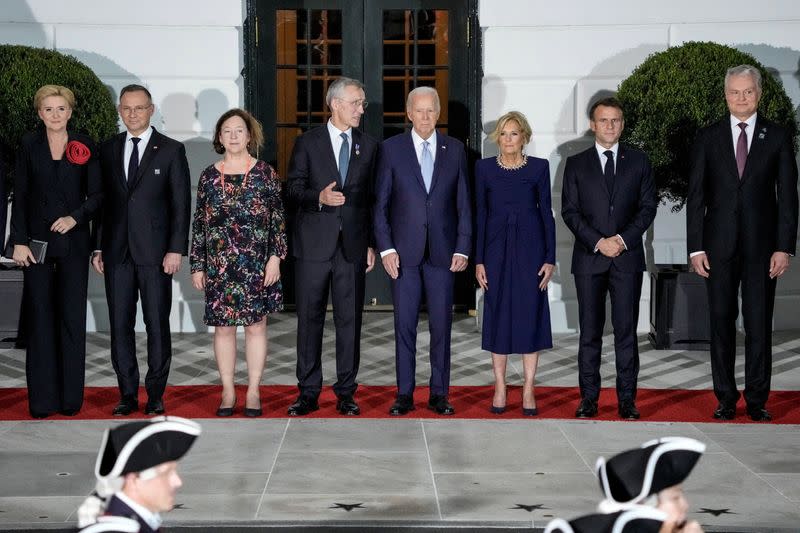China says NATO statement about its role in Russia-Ukraine conflict are 'malicious'

BEIJING (Reuters) - China on Thursday criticized a communique from the NATO summit in Washington that described it as decisive enabler of Russia's war effort in Ukraine as biased and 'sowing discord'.
Beijing continues to pose systemic challenges to Europe and to security, the planned communiques also said.
"On the Ukraine crisis, NATO hyped up China's responsibility. It makes no sense and comes with malicious intent," Chinese foreign ministry spokesperson Lin Jian told a regular press briefing.
"We urge NATO to reflect on the root cause of the crisis and what it has done, and take concrete action to de-escalate rather than shift blame," Lin added.
His comments follow remarks from a spokesperson for the Chinese mission to the European Union who described the declaration as "full of Cold War mentality and belligerent rhetoric, and China-related content full of provocations, lies, incitement and smears."
"China's core position on the Ukraine issue is to promote peace talks and political settlement, which has been widely recognized and appreciated by the international community," said the spokesperson.
Beijing put forward a 12-point paper more than a year ago that set out general principles for ending the war, but did not get into specifics. It received a lukewarm reception at the time in both Russia and Ukraine.
For its part, China has repeatedly lashed out at NATO criticisms and has warned against its expansion into the Asia-Pacific region, saying it disrupts the prosperity and stability of the region.
Leaders of Japan, South Korea, New Zealand and Australia, in attendance at NATO, have forged stronger ties with the security alliance amid rising concerns over China's aggressions in the South China Sea.
(This story has been corrected to show the declaration was not a draft in paragraphs 1 & 5, and corrects the spokesperson's name in paragraph 3)
(Reporting by Bernard Orr and Mei Mei Chu, Shanghai and Hong Kong newsrooms; Editing by Muralikumar Anantharaman and Edwina Gibbs)

 Yahoo News
Yahoo News 
